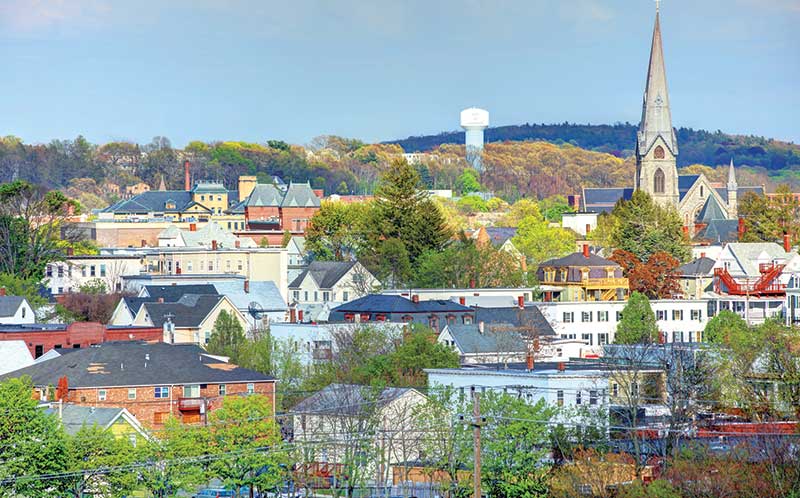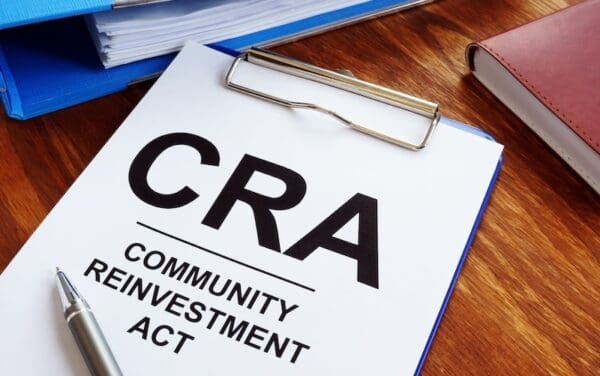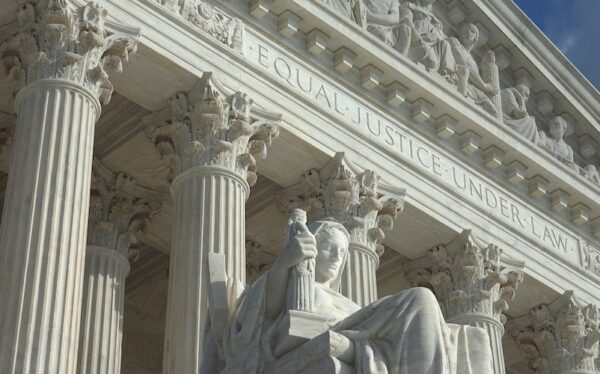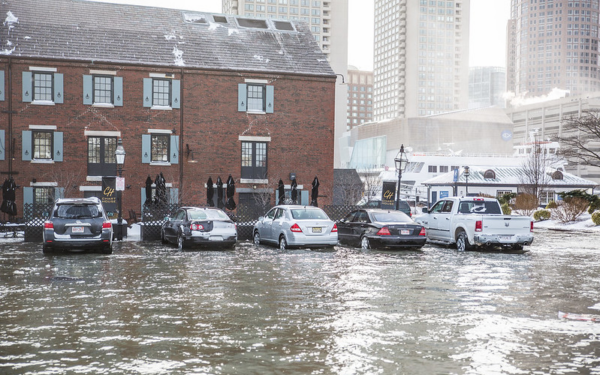
Those forced to live with environmental injustice are often ignored when it comes to issues that affect their daily lives. The Lawrence resiliency project seeks to puts put residents in the lead. Photo: Dennis Tangney, Jr., via Istock
Extended heat waves, stronger nor’easters, more intense and frequent rainstorms – these are some of the climate impacts expected to affect New England. But they will hit some communities harder than others. Those living in urban areas with little tree cover, for example, suffer more when heat waves strike. The acres of buildings and pavement create a deadly heat island effect, in which temperatures soar even higher and air quality worsens, affecting public health.
The same areas that will be hit hardest tend to be home to more families of color and low-income families than other parts of New England. To address these climate and health inequities – and with support from the Robert Wood Johnson Foundation – CLF and Groundwork Lawrence have launched a 30-month project in Lawrence, Massachusetts. The project is part of an initiative funding six U.S. cities that aims to bring innovative approaches from abroad that mitigate the unequal health risks posed by climate change. The goal: to create “resilient corridors” that will allow residents to safely walk or bike to parks, health food stores, community centers, and schools. These corridors do double duty – addressing health disparities and building climate resilience.
It won’t be CLF and Groundwork Lawrence determining what to prioritize for these corridors, however. It will be Lawrence residents themselves. A four-member resident task force is both conducting research – they recently placed air quality monitors throughout the city – and engaging neighbors to educate them and hear their ideas for how to address climate issues.
“The idea of re-imagining our city, what the city looks like –whether it’s the streets or public spaces, or the creation of green spaces – is very exciting,” says task force member Jorge Hernandez. An educator who has lived in Lawrence for 16 years, Jorge feels especially excited about the opportunity to work with the task force on this project. “Everyone is really dedicated, focused on how we can help residents understand what it is that we’re trying to accomplish.”
Fellow task force member Destiny Gonzalez agrees. “The fact that I can be one of the voices at the forefront of that change makes me so excited,” the lifelong “Lawrencian” and college student says.
The task force members recognize that it could be challenging for their climate message to break through the daily pressures facing people in this largely immigrant city. “You have people who moved their entire lives here for a better opportunity,” says Gonzalez. “They don’t understand why plastic grocery bags are bad – they’re just trying to get their groceries. There’s so much pressure to succeed, to make ends meet. But if they understand that giving your kids a better life is also about bettering the climate in your city, then that’s going to start changing mindsets. Then people will start taking initiative.”
This resident-led project could become a model for how to create change both for and by the community. That is especially critical in cities like Lawrence, where people of color have too long borne the brunt of pollution yet have had their voices ignored when it comes to decisions that affect their communities.
Says Hernandez: “The more we’re able to let the community know we’re looking for their input – that is going to help drive what actually gets done.”
Track Progress
CLF works with partners across New England to strengthen community resilience in the face of climate impacts. You can hear more from all four Lawrence resident task force members – Destiny Gonzalez, Eve Rodriguez, Martha Leavitt, and Jorge Hernandez – in our interviews with them. And, keep up with the progress of the project by visiting groundworklawrence.org.




